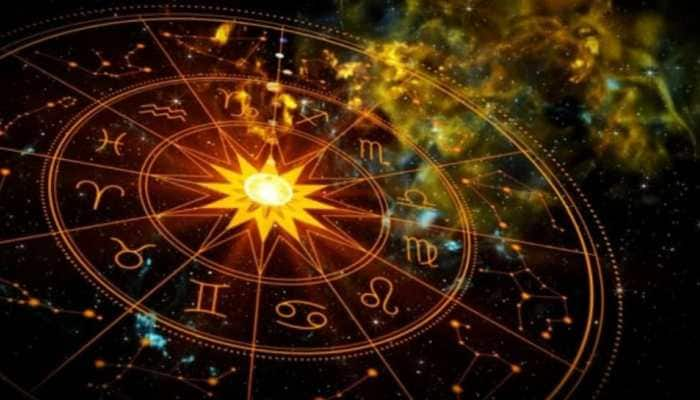Valentine's Day 2023: History and the Story of The Real Valentine Behind Valentine's Day Celebrations
Happy Valentine's Day: Valentine's Day may be attributed to romance, but its history isn't exactly romantic. Here are facts on Valentine's Day's history and why we celebrate it.
Trending Photos
) Happy Valentine's Day: History of Valentine's Day and why do we celebrate Valentine's Day
Happy Valentine's Day: History of Valentine's Day and why do we celebrate Valentine's Day History of Valentine's Day: Whether you enjoy Valentine's Day or hate it, one thing is hard to deny: the celebration has a long legacy. The origins of Valentine's Day are also much less romantic than the modern traditions of kissing, giving Valentine's Day gifts, and booking challenging restaurant appointments. Here is the Valentine's Day history that wouldn't function as a romantic comedy, which includes a saint, a tragedy, and even some sinful nuns. This day marks the day of love and bonding for not just couples but also to recognize the love you share with your best friends and with yourself.
Every year, February 14 marks Valentine's Day. The colour red is often associated and has been used for years on Valentine's Day to symbolise love and affection because it is a powerful colour that arouses strong emotions and is linked to passion, desire, and love.
Valentine's Day 2023: History of Valentine's Day
Valentine's Day is a fixed date on the calendar that was combined with Lupercalia, a mid-February festival on the ancient Roman calendar, which some historians say is how Valentine's Day came to be associated with love. A ritual in which men and women were matched by selecting names from a jar could have been part of the fertility celebration known as Lupercalia.
People in ancient Greece celebrated the union of the god Zeus and the goddess Hera during winter.
Valentine's Day 2023: Story of Saint Valentine
Around 500 AD, the Catholic Church included St. Valentine's Day as a feast day in its liturgical calendar. Valentine-themed martyred saints were honoured on this day. Three separate saints named Valentine or Valentinus were commemorated in various traditions, but because so little is known about them and because the St. Valentine's Day tale has been documented in numerous ways, the feast day was dropped from the Christian liturgical calendar in 1969.
According to a tale, Saint Valentine was condemned to death by Roman Emperor Claudius II because he refused to accept paganism. His jailer's daughter was miraculously healed before he was put to death, and both she and the rest of his family afterwards embraced Christianity. According to a different legend, the festival is indeed named after a bishop by the name of Saint Valentine of Terni, who was also executed on this day.
Others, however, claim that Saint Valentine was a Roman priest who officiated weddings for soldiers who were forbidden from marrying due to a Roman emperor's edict that married soldiers did not make excellent warriors and hence young men could not marry. This is how Saint Valentine came to be associated with a love-centred festival. As a sign of affection and to aid in his recognition by soldiers, this Saint Valentine wore a ring with a Cupid on it. He also distributed paper hearts to remind Christians of their love for God, a practice that marks the use of greeting cards.
Saint Valentine gained attention as the patron saint of love as a result of this myth. In the Saint Valentine prayer, it is prayed that Saint Valentine brings together lovers so that they may unite as one and remember their faith in God.
Valentine's Day 2023: Why do we celebrate Valentine's Day?
The term "valentine" was first used to refer to a lover in poetry and music towards the end of the 15th century, and an English book titled The Young Man's Valentine Writer was produced in the 18th century.
The truth about Valentine's Day's past is that tragedies have still happened on this day of romance. On February 14, 1929, seven men were murdered in Chicago during Prohibition by a gang headed by Al Capone. With police and lawmakers going after the gangs and mobs that had formed in cities to control then-illegal substances like alcohol, the Valentine's Day Massacre constituted a turning point in Prohibition history.
(Disclaimer: The article is based on general information and common beliefs. Zee News does not confirm this.)
Stay informed on all the latest news, real-time breaking news updates, and follow all the important headlines in india news and world News on Zee News.
Live Tv







)
)
)
)
)
)
)
)
)
)
